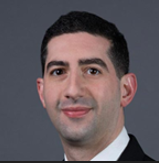Dr Zachary Solomon: Best Practices After Cardiac Surgery
Dr Zachary Solomon: Best Practices After Cardiac Surgery
Blog Article

Cardiothoracic surgery the same as these performed by Dr Zachary Solomon has long been at the forefront of medical developments, combining accuracy, ability, and technology to treat situations of the center, lungs, esophagus, and other organs in the thorax. In the last several years, this area has seen innovative innovations and techniques which have significantly improved individual outcomes, recovery times, and over all quality of life, according to Dr Zachary Solomon.
The Evolution of Cardiothoracic Surgery
Cardiothoracic surgery has come a considerable ways from their early days. The first effective center function, done in the late 19th century, put the foundation for an evolving specialty marked by quick advances. By the mid-20th century, the development of the heart-lung device permitted surgeons to perform complicated open-heart procedures. Nowadays, the control is growing with ongoing research and technical innovations.
Minimally Intrusive Surgery
One of the very groundbreaking advancements in cardiothoracic surgery is the development of minimally invasive techniques. These procedures in many cases are conducted through small incisions, lowering stress to the human body and marketing faster recovery. Some critical minimally unpleasant methods contain:
• Robotic-Assisted Surgery
• Video-Assisted Thoracoscopic Surgery (VATS
• Transcatheter Aortic Device Substitute (TAVR
Image-Guided and Computer-Assisted Surgery
Advanced imaging technologies and computer-assisted techniques have somewhat improved the precision and security of cardiothoracic procedures. Improvements in this region contain:
Enhanced Healing Practices
Improvements in perioperative attention have generated the progress of Enhanced Healing After Surgery (ERAS) standards, which aim to optimize preoperative, intraoperative, and postoperative treatment to boost recovery.
Future Instructions
The continuing future of cardiothoracic surgery is encouraging, with ongoing study into:
• Base Mobile Treatment: Discovering the possible of base cells to correct and regenerate broken heart tissues.
• Artificial Intelligence (AI): AI-driven analytics may support in diagnosis, precise planning, and result prediction, resulting in more personalized and efficient treatments.
• Nanotechnology: The applying of nanoparticles for targeted drug distribution and minimally unpleasant therapy options.
Realization
Cardiothoracic surgeons like Dr Zachary Solomon Philadelphia remains to drive the boundaries of what's probable in medicine. With the continuous development of revolutionary methods and systems, patients may anticipate better procedures, shorter recoveries, and better over all outcomes. The persistent pursuit of brilliance in that subject underscores the commitment to increasing the quality of life for individuals with cardiothoracic conditions.
Report this page